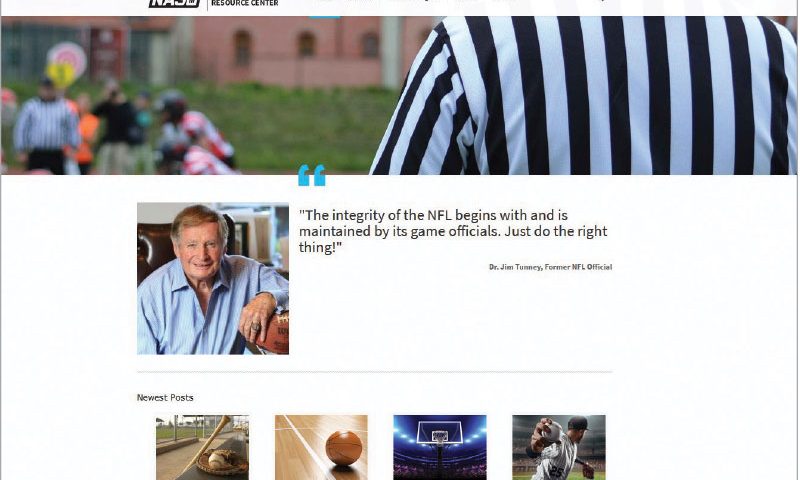
Compliance Programs are Starting to Take Root Within MLB
June 7, 2021
Integrity Clearly at Issue Within the IOC and the AIBA
October 11, 2021Peanut butter and jelly. Mac and cheese. Bacon and eggs.
Some things just go together.
In the world of sports officiating, it might seem obvious the correct pairing would be officials and integrity. However, when a group of 100 officiating leaders and active officials from all levels gathered together in 2016 in St. Louis during a special session of the annual NASO Summit, it became clear there was a need for officiating organizations to establish programs to prevent wrongdoing within the officiating ranks.
Thus, the NASO Integrity Resource Center (IRC) was born. Now five years old, the IRC is a dedicated website operated by NASO that shares information, education and other resources with NASO members on the benefits of establishing a preventative program in their local officiating association or unit.
“While there continues to be much discussion among officiating leaders about how to deal with wrongdoing in officiating and in sports more broadly, the fact is that sports organizations have been slow to develop formal comprehensive programs addressing all areas of compliance and ethics risks,” said former NASO board member David Dodge, who served as chair of NASO’s Integrity Committee that guided the formation of the IRC.
“Many sports organizations and officiating groups have reviewed and updated their codes of conduct and policies and procedures while upgrading their training programs, and a few have even added a hotline. However, few have invested the time and resources which are needed to establish effective enterprise-wide preventive programs.”
While officials and their leadership are understandably quick to embrace integrity as it relates to their on-court or on-field job performance, in many cases that sense of compliance and ethics does not translate to behaviors behind the scenes or in the boardroom. Often, officiating associations do not even recognize the need for an in-house integrity program until an issue arises and there is no formal outline for how to handle the crisis.
“Sweeping such incidents under the rug no longer works, and hoping they won’t happen again is not a strategy,” said Dodge, a former longtime men’s college basketball official.
The IRC provides numerous resources for officiating leaders interested in exploring what it would take to establish an integrity program. The website features a set of NASO board-approved minimum standards, a list of frequently asked questions, a blog including posts related to compliance matters in the officiating realm, the introductory welcome message shared by NASO founder and president Barry Mano when the IRC was created, and a link to download NASO’s “Getting Started Guidebook.”
Dodge believes that moving forward, more sports organizations and their officiating associations will continue to develop effective prevention programs similar to those seen in other growth industries such as financial services and healthcare.
“Preventing scandals and addressing all areas of compliance and ethics risk in sports demands nothing less,” Dodge said.


